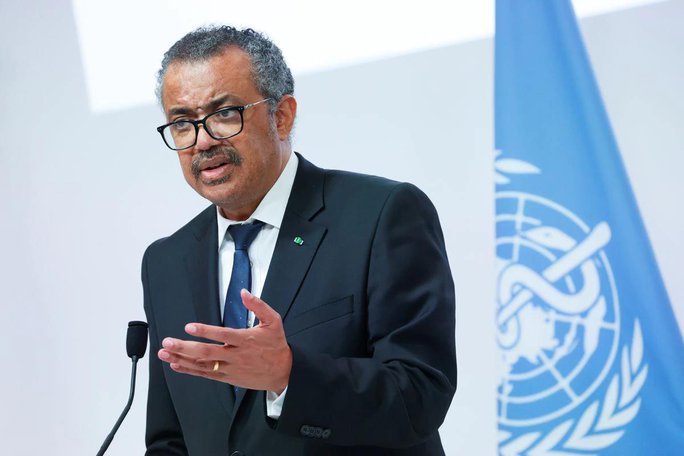The report sent by WHO to Lao Dong Newspaper on the morning of April 5 quoted WHO Director-General Tedros Adhanom Ghebreyesus: "The sheer number of people affected shows the need to expand access to reproductive care and ensure this issue is no longer overlooked in health research and policy."
Governments need to ensure safe, effective and affordable ways to achieve parenthood are available to those who seek it, he said.

Dr Tedros said it was necessary to ensure that parenthood was available to those who sought it, through policies on assisted reproduction - Photo: WHO
According to the report, about 17.5% of the adult population – about one in six – is infertile , highlighting the urgent need to increase access to high-quality reproductive care for those in need.
New estimates show limited regional variation in infertility rates. Lifetime prevalence is 17.8% in high-income countries and 16.5% in low- and middle-income countries, suggesting that the problem is common regardless of living standards and health care availability.
Infertility is a disease of the male or female reproductive system, defined as the inability to become pregnant after 12 months or more of regular sexual intercourse without using any contraceptive measures.
“This can cause significant distress, stigma and financial hardship, affecting people's mental health and psychosocial well-being,” WHO said.
Despite the severity of the problem, solutions to prevent, diagnose and treat infertility – including assisted reproductive technologies such as in vitro fertilization (IVF) – remain underfunded and inaccessible to many due to high costs, social stigma and limited availability.
Currently, in most countries, fertility treatments are largely paid for by individuals, which prevents people from accessing infertility treatments or, conversely, can push them into poverty due to treatment, especially in low-income countries.
“Millions of people face catastrophic health care costs after seeking treatment for infertility, making it a major equity issue and often a health poverty trap for those affected,” said Dr Pascale Allotey, Director of Research and Sexual and Reproductive Health at WHO. “Better public policies and funding can significantly improve access to treatment and thereby protect vulnerable households.”
While the new report provides compelling evidence of high rates of infertility globally, it highlights a persistent lack of data in many countries and some regions. It calls for more national data, disaggregated by age and cause, to help quantify infertility more specifically, as well as understand who needs fertility support and how to reduce the risk.
Source

































































































Comment (0)